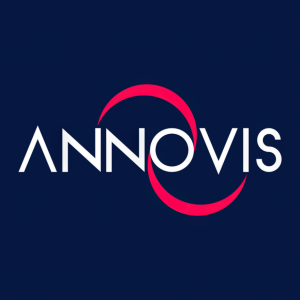Annovis Bio Showcases Promising Progress in Novel Drug Development at the 2023 Clinical Trials on Alzheimer's Disease Conference
- Annovis Bio presents promising findings on its drug buntanetap for the treatment of neurodegenerative diseases at the CTAD conference. The drug has shown to inhibit toxic proteins, improve cognitive function, and enhance movement in mouse models and human trials. Phase III trials are currently underway.
- None.
Insights
Analyzing...
Neurotoxic protein overexpression disrupts axonal transport, causing inflammation, loss of function, and nerve cell death. These are all hallmarks of neurodegenerative diseases, including Alzheimer's and Parkinson's. Buntanetap, the drug being developed by Annovis, inhibits the production of all the major neurotoxic proteins responsible for AD and PD before they are produced, while other drugs only target one toxic protein after it has already been produced. This novel mechanism of action makes Annovis' drug a potentially effective treatment option for AD and also for PD.
The posters' collective findings highlight a highly promising treatment for neurodegenerative conditions like Alzheimer's disease and Parkinson's disease. First, in mouse models of Alzheimer's disease and other neurodegenerative diseases, buntanetap has been found to inhibit toxic proteins in the brain, enhance axonal transport, reduce inflammation, and safeguard nerve cells from dying. This has been linked to better cognitive function.
Second, these findings have been replicated in all human AD and PD phase I and II trials to date, demonstrating decreased levels of toxic proteins in the brain, improved axonal transport, reduced inflammation, and neuroprotection. In both mice and humans, buntanetap has not only been safe and well-tolerated but has also improved movement in PD trials and cognition in AD trials. Additionally, in mice and humans, evidence shows a dose-response relationship between drug dose and inhibition of neurotoxic proteins. Currently in phase III trials, Annovis Bio is having discussions with the FDA about the path forward.
Cheng Fang, Ph.D., senior vice president of research and development at Annovis Bio, is presenting two posters at CTAD. In the first - “Phase 3 Clinical Studies in Alzheimer’s and Parkinson’s Diseases; Interim Analysis and FDA Guidance for Both Indications,” provides an overview of the advancements made in its phase III study in early Parkinson’s Disease (PD) and its phase II/III Alzheimer's Disease (AD) study on track for a potential New Drug Application (NDA) that has the potential to be used in the treatment of both these diseases.
In “Do Mouse Data Lie? For Buntanetap, Mouse Data Are Predictive Of Humans” - Annovis conducted a study to see if the data collected from animals would resemble the data collected from humans. Through their research on Alzheimer's disease in mouse models and humans, they were able to reduce the production levels of toxic proteins from disease levels to normal levels. The results consistently showed lower levels of neurotoxic aggregating proteins and significant improvements in cognition after buntanetap treatment.
“It is very exciting to have concordance of results from animal and human studies combined with the human trials being on track with our once daily oral medication yielding no drug-related serious adverse events, low drop out rate and minimal adverse effects,” said Cheng Fang Ph.D., senior vice president of research and development at Annovis Bio. “ As we wait for human trial final results, this is exactly where we want to be.”
The CTAD conference is a gathering that brings together key leaders in Alzheimer's Disease research from both industry and academia to form partnerships with the goal of accelerating the development of effective treatments to combat the disease.
About Annovis Bio, Inc.
Headquartered in
Forward-Looking Statements
Statements in this press release contain "forward-looking statements" that are subject to substantial risks and uncertainties. Forward-looking statements contained in this press release may be identified by the use of words such as "anticipate," "expect," "believe," "will," "may," "should," "estimate," "project," "outlook," "forecast" or other similar words, and include, without limitation, statements regarding the timing, effectiveness, and anticipated results of buntanetap clinical trials. Forward-looking statements are based on Annovis Bio, Inc.'s current expectations and are subject to inherent uncertainties, risks and assumptions that are difficult to predict. Further, certain forward-looking statements are based on assumptions as to future events that may not prove to be accurate. These and other risks and uncertainties are described more fully in the section titled "Risk Factors" in the Annual Report on Form 10-K for the year ended December 31, 2021, filed with the Securities and Exchange Commission. Forward-looking statements contained in this announcement are made as of this date, and Annovis Bio, Inc. undertakes no duty to update such information except as required under applicable law.
View source version on businesswire.com: https://www.businesswire.com/news/home/20231024155136/en/
Media:
Scott Sauer
Jacobson Strategic Health
484-350-9472
scott@jacobsonstrategic.com
Source: Annovis Bio, Inc.







